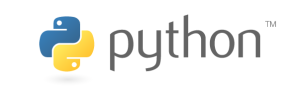My intention is to write a series of posts discussing practical ways of working with PyQt. I’ve recently thought about the fact that blog posts can be a formidable way to note down things I may need to refer to someday in the future. This is a sorta rediscovering the meaning of a journal: an organic (or not) bunch of entries and annotations which, by growing in time, become a precious reference for the writer.
This thought of mine got stuck to another mental post-it I had about learning PyQt which eventually lead me to shape this column.
 Qt is an application development framework mostly used to create graphical applications (and also non GUI apps). It’s created and maintained by Qt Software (formerly Trolltech), a Norwegian company acquired by Nokia since June 2007. Qt is know to be a cutting edge library designed to supply advanced features which can be implemented with flashy code and deployed on several platforms like Linux, Windows, Mac OS, Windows CE and Embedded Linux. Qt has been used to create well-known apps like KDE, GoogleEarth, VLC, Skype, Photoshop Elements, Qtopia, Virtual Box, etc…
Qt is an application development framework mostly used to create graphical applications (and also non GUI apps). It’s created and maintained by Qt Software (formerly Trolltech), a Norwegian company acquired by Nokia since June 2007. Qt is know to be a cutting edge library designed to supply advanced features which can be implemented with flashy code and deployed on several platforms like Linux, Windows, Mac OS, Windows CE and Embedded Linux. Qt has been used to create well-known apps like KDE, GoogleEarth, VLC, Skype, Photoshop Elements, Qtopia, Virtual Box, etc…
PyQt is the Python binding of the very famous library Qt and it’s created and maintained by the British company Riverbank.
 Python is a high level, interpreted, object oriented (even if it supports other types of programming paradigms), open source programming language. It’s a fairly young language which is getting more and more consensus among the developers mainly thanks to some features which makes Python the most desirable choice for a wide range of tasks. Python focuses on simplicity and elegance; the syntax and semantics are minimalistic: something which lead to an increased productivity and a less painful code maintenance. Python gets rid of twisted structure and useless fripperies like brackets, thus enhancing readability. Despite its minimalism Python offers a huge standard library.
Python is a high level, interpreted, object oriented (even if it supports other types of programming paradigms), open source programming language. It’s a fairly young language which is getting more and more consensus among the developers mainly thanks to some features which makes Python the most desirable choice for a wide range of tasks. Python focuses on simplicity and elegance; the syntax and semantics are minimalistic: something which lead to an increased productivity and a less painful code maintenance. Python gets rid of twisted structure and useless fripperies like brackets, thus enhancing readability. Despite its minimalism Python offers a huge standard library.
Beyond all this it’s worth saying that Python’s also my favourite programming language.
For sure Python hasn’t the power, in terms of CPU squeezing, of languages like C or C++, but unless you are developing the engine for a real time 3D graphics application, like a cutting edge video game, then my opinion is that for 90% of your needs Python is simply unbeatable.
Stay tuned on this channel to read the first installment of My Journey Into PyQt
Note on licensing:
The Open Source Editions of Qt is freely available for the development of Open Source software governed by the GNU General Public License (GPL). For more information…
PyQt v4 is available on all platforms under a variety of licenses including the GNU GPL (v2 and v3). If your use of PyQt is compatible with the GPL then you do not need to buy a commercial PyQt license. Similarly you do not need to buy a commercial Qt license. For more information…
Python is licensed under The Python Software Foundation License (PSFL) which is a BSD-style, permissive free software license compatible with the GNU General Public License (GPL). For more information…





